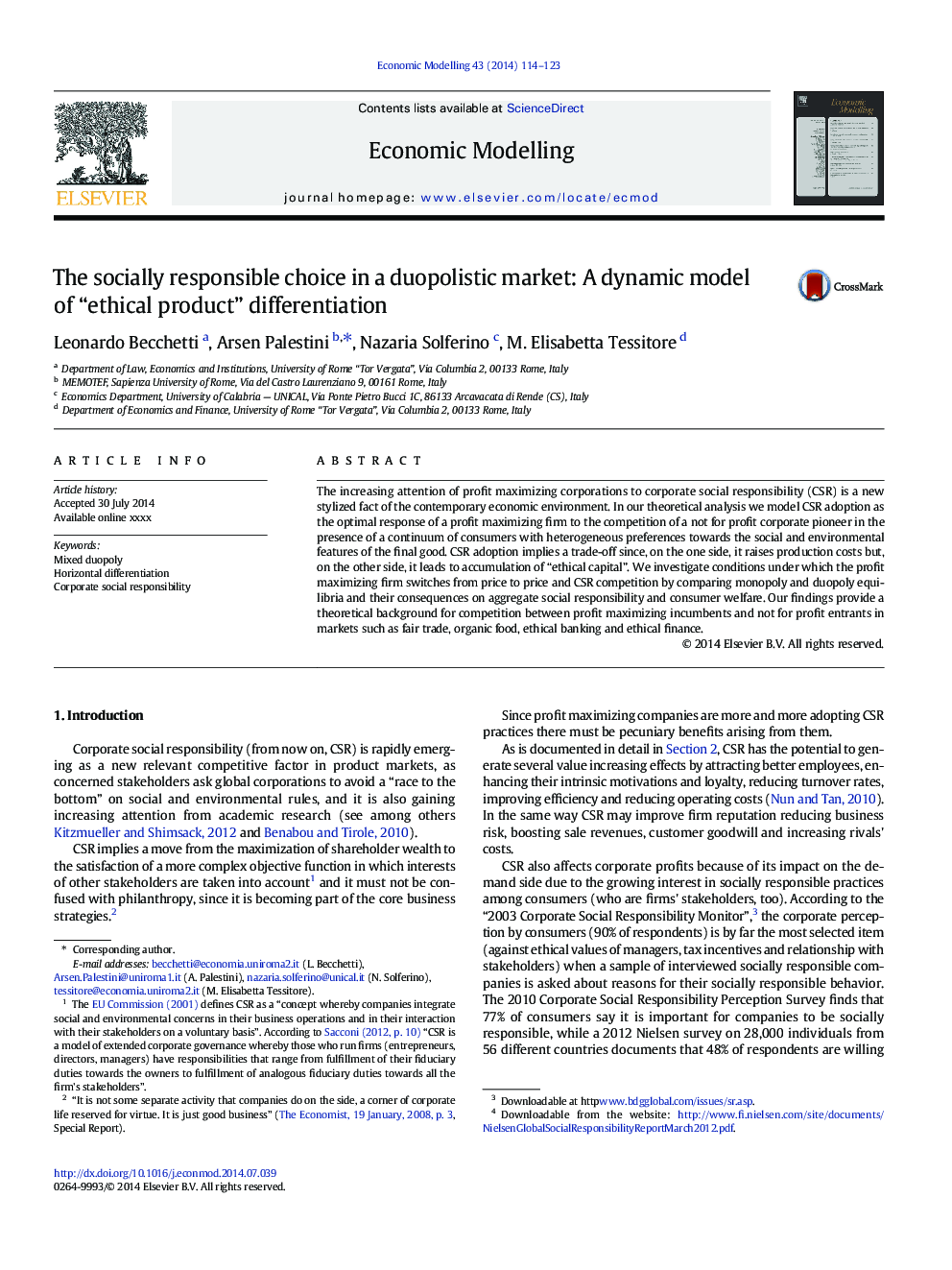| Article ID | Journal | Published Year | Pages | File Type |
|---|---|---|---|---|
| 5054169 | Economic Modelling | 2014 | 10 Pages |
Abstract
The increasing attention of profit maximizing corporations to corporate social responsibility (CSR) is a new stylized fact of the contemporary economic environment. In our theoretical analysis we model CSR adoption as the optimal response of a profit maximizing firm to the competition of a not for profit corporate pioneer in the presence of a continuum of consumers with heterogeneous preferences towards the social and environmental features of the final good. CSR adoption implies a trade-off since, on the one side, it raises production costs but, on the other side, it leads to accumulation of “ethical capital”. We investigate conditions under which the profit maximizing firm switches from price to price and CSR competition by comparing monopoly and duopoly equilibria and their consequences on aggregate social responsibility and consumer welfare. Our findings provide a theoretical background for competition between profit maximizing incumbents and not for profit entrants in markets such as fair trade, organic food, ethical banking and ethical finance.
Related Topics
Social Sciences and Humanities
Economics, Econometrics and Finance
Economics and Econometrics
Authors
Leonardo Becchetti, Arsen Palestini, Nazaria Solferino, M. Elisabetta Tessitore,
